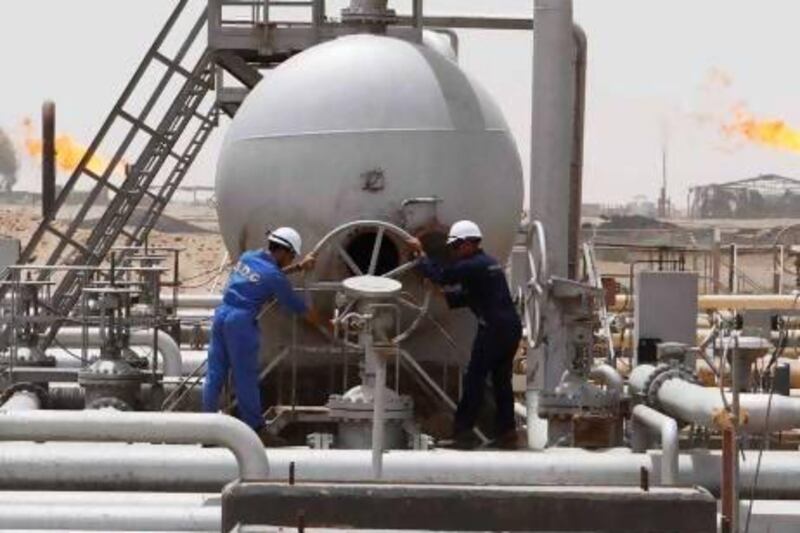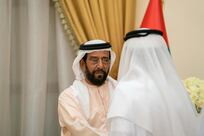The US engineering giant Fluor is set to double its business from the Middle East within two years as it increases its focus on the energy sector to compensate for a slowdown in mining.
"Mining [is] slowing a bit, which allows us to pull our resources back into oil and gas, in which we see significant growth next year and in 2014," said David Seaton, the Fluor chief executive.
"The oil and gas business […] has been a key growth engine for many years. It's starting to create the same trajectory as happened in the last cycle," he added.
The Middle East will be a major growth market for the largest listed American engineering firm, Mr Seaton believes.
Fluor is heavily involved in Abu Dhabi's efforts to increase its gas supply, and has a presence in Saudi Arabia, Qatar and Iraq. The region constituted about 40 per cent of the firm's business five years ago, before the company reduced its Middle East presence by about half.
"My guess is we should be getting back in at 40 per cent in the next couple of years," said Mr Seaton.
The exploitation of shale rock reservoirs has led to a boom in natural gas production in North America, and new production techniques are similarly increasing oil production.
Fluor is benefiting from the boom, and the company is active on projects with a potential capital expenditure of US$30 billion (Dh110.19bn) in the Gulf coast of the United States alone, said Mr Seaton.
Similar to the US, unconventional sources will play a big role in expanding supply of gas in particular.
In the UAE, the majority of additional gas will be won from unconventional sources, such as the massive Shah sour gasfield, where gas will have to be stripped of its heavy sulphur content once production starts in 2014. Fluor is providing project management expertise to the project.
Mr Seaton, who spoke at the Gulf Petrochemicals & Chemicals Association's annual conference in Dubai yesterday, also believes that the region's petrochemical industry will recover from a price slump, once the global economy has picked up.
"Obviously we need China to stabilise, to change to more of a growth story for petrochemicals," he said.
A key project for Fluor in the region is its work for ExxonMobil in the West Qurna-1 oil megafield in Iraq.
Exxon recently announced it is selling its stake in the field after infuriating the Iraqi government over its decision to enter exploration agreements with the Kurdish regional government (KRG). Baghdad does not recognise oil contracts with the KRG, and has a policy of blacklisting companies active in Kurdistan.
The central government is reportedly trying to get Russia's Lukoil and the China National Petroleum Corporation to replace Exxon in West Qurna-1, and Mr Seaton is hopeful that his company can remain active in the field in spite of changing operatorship.
The chief executive does not rule out following Exxon into Kurdistan either.
"I'd like to continue in West Qurna. I think Basra is a great place, and I see great opportunities long-term in Iraq, both in terms of southern Iraq as well as Kurdistan," he said.
Mr Seaton is unconcerned about the success of Asian competitors in the region, even as Korean engineering and construction firms in particular have made striking inroads in the energy and power sectors.
"I feel quite comfortable competing against the Asian competitors. They don't bother me at all."





